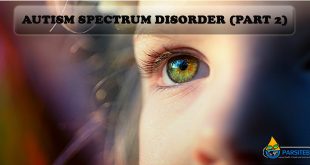Alopecia areata is a disease that causes hair to fall out in small patches. Alopecia areata rarely causes total hair loss, however it can prevent hair from growing back. The condition is not life threatening, does not cause pain or illness, and hair loss can stop just as suddenly as it started. It may even grow back on its own without any medical intervention. Hair loss and regrowth varies from person to person.
Currently there is no cure for alopecia areata, but there are some treatments that may help speed up the growth of hair afterward.
What Causes Alopecia Areata?
Alopecia areata is an autoimmune condition in which the immune system attacks the hair follicles. Some scientists believe that genetics may be a factor, however the cause is unknown.
Symptoms of Alopecia Areata
The main symptom of alopecia areata is loss of hair in small, round patches (roughly the size of a quarter) on the scalp. However, other types of diseases can cause hair to fall out in this same pattern. This symptom alone should not be used to diagnose alopecia areata.
Patients with alopecia areata experience hair loss in random patches on the scalp. Other forms of alopecia include alopecia totalis, when the hair loss starts happening across the entire head and alopecia universalis, which causes total loss of all body hair.
Tests and Diagnoses
Your doctor will review your symptoms to determine if you have alopecia areata. He or she may also perform a scalp biopsy to rule out other conditions. Blood tests may also be performed if other autoimmune diseases are suspected.
Treatment of Alopecia Areata
There is no known cure for alopecia areata, but you may be able to stop the loss of hair, or even grow it back naturally or with the aid of medication. However, it is important to note that there are no drugs approved to treat alopecia areata.
Medical treatment
Certain treatments can stimulate hair growth; however none can prevent further hair loss or cure the disease. Drugs such as minoxidil (Rogaine) can be rubbed into the scalp to stimulate hair growth. Other therapies include steroid injections, corticosteroid creams, or photochemotherapy, a treatment that uses a combination of oral medication and ultraviolet light.
Alternative therapies
Some people with alopecia areata opt for nonmedical treatments, such as aromatherapy, acupuncture, and herbal supplements and vitamins. Most alternative therapies have not been tested in clinical trials, however, so their effect on hair loss or growth is unknown.
Treatments do not work the same for every patient. Therefore, you may need to try more than one treatment to see a difference. Keep in mind that hair regrowth may only be temporary. Ultimately some patients do not even need treatment since their hair grows back on its own, while others never see improvement despite trying every option. No treatment method is guaranteed.
How Can Alopecia Areata Be Prevented?
There is no way to prevent alopecia areata. If you are concerned about developing this condition at some point, you can find out if your relatives have it so you have an idea of whether you are susceptible to this disease. If you find you have a better-than-average chance of developing it, all you can do is:
- Research the disease.
- Ask your doctor any questions you have.
- Find out more about the treatment options.
 Parsi Teb Physical and Mental Health Journal
Parsi Teb Physical and Mental Health Journal 




